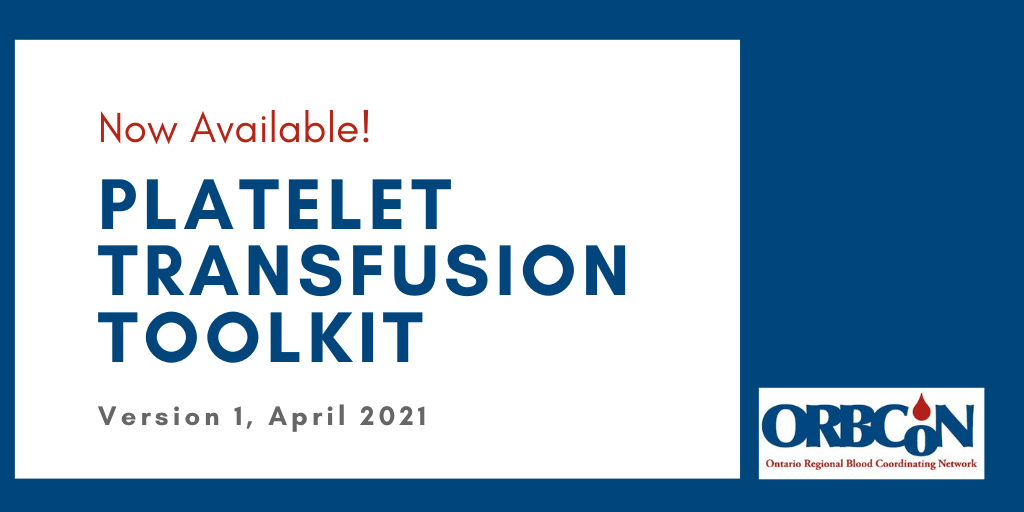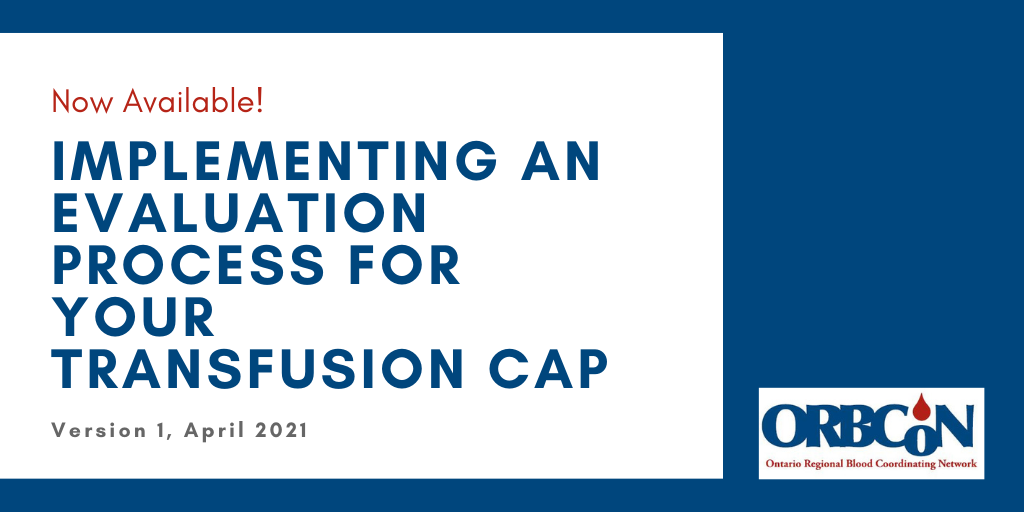Bloody Easy Blood Administration (BEBA) Resources
By Donna Berta RN BScN, Clinical Project Coordinator – Nursing, ORBCoN
Renewal of ORBCoN’s resource Bloody Easy Blood Administration, known as BEBA, is complete!
The BEBA Handbook version 3 has been available electronically for several months, with the French translation, print copies, and the BEBA eLearning program coming soon. These tools, for ongoing learning and for competency assessment, are ready to guide you in your day-to-day transfusion patient care.
To ensure patient safety, blood transfusion is highly regulated by Health Canada and Transfusion Medicine standards. BEBA Handbook is referenced to these standards to provide clear rationale for polices and procedures. BEBA eLearning stems from the handbook but focuses on red blood cell (RBC) transfusion, the most frequently transfused blood component (nearly 1,000 RBC units are transfused across Ontario hospitals every day).
BEBA Handbook begins with the fundamentals of transfusion safety: blood production and ABO/Rh(D) compatibility. Examples are provided to apply your understanding of compatibility, often a challenging topic. The essential knowledge for administering common blood components and products is available in table format. The transfusion process from informed consent to group and screen testing to checking blood to documentation is outlined in detail. Transfusion is not without potential complications; acute and delayed transfusion reactions and their management are explained. To practice your learning, acute transfusion reaction scenarios are presented. Urgent transfusion basics and the 7 T’s of Ontario’s Massive Hemorrhage Protocol are illustrated. Throughout the handbook, concepts are noted in depth as well as summarized with charts for quick reference. A one-page synopsis, the Transfusion Checklist, completes the handbook. The ORBCoN website also provides the Transfusion Checklist in poster format for hospitals to tailor to their individual needs.
Transfusionist competency assessment is an explicit requirement of the standards. The BEBA eLearning program was developed to meet this responsibility. The learning module identifies current evidence-based adult transfusion guidelines for RBC, platelets, and plasma followed by a review of required actions for safe transfusion (for blood administration and in the event of a reaction). Engaging, interactive learning activities were created by ORBCoN’s accomplished Information Technology Analyst. The assessment quiz questions will be refreshed on an annual basis. The program is operationalized via ORBCoN’s new Learning Management System (further described in this Newsletter).
It is anticipated that these resources will augment your practice. Future endeavours include guidance via patient case analysis as well as developing neonatal and pediatric foci. Opportunities to enhance learning and optimize transfusion patient care are welcomed; please provide your feedback and suggestions (email transfusionontario@gmail.com).

NEW RESOURCE AVAILABLE AT TRANSFUSIONONTARIO.ORG

University of Toronto Transfusion Medicine Rounds – September 23, 2021
September 23 @ 12:00 pm – 1:00 pm
Albumin: Understanding the Controversy presented by Dr. Justyna Bartoszko

NEW RESOURCES AVAILABLE AT TRANSFUSIONONTARIO.ORG